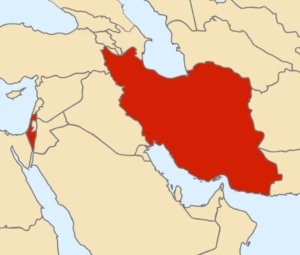 On Friday June 20th, I hosted my monthly virtual movie night. This month’s movie was the second half of Manufacturing Consent, a documentary based on the 1988 book written by author and activist Noam Chomsky with economist and social critic Edward S. Herman.
On Friday June 20th, I hosted my monthly virtual movie night. This month’s movie was the second half of Manufacturing Consent, a documentary based on the 1988 book written by author and activist Noam Chomsky with economist and social critic Edward S. Herman.
The thesis of the book and the movie is that our media manufacture consent by rarely offering views or opinions outside of a narrow band of ‘acceptable’ thoughts.
The above might sound a bit theoretical but it quickly becomes very apparent when looking at, say, the Israel-Iran conflict.
In listening to media reports since Israel’s June 12th bombing of Iran, it was apparent that mainstream media were mostly parroting Israel’s line that their attack on Iran was preemptive and necessary in order to prevent Iran from developing nuclear weapons.
I heard no mention in any of the news stories of the fact that there is only one nuclear-armed country in the Middle East, and it is Israel
While not officially acknowledged by Israel, it is accepted internationally that they have nuclear weapons – estimated at 90 in 2024 – as well as supporting airplanes, missiles, and stockpiles of plutonium and uranium. Further, Israel has not signed the international Treaty on the Non-Proliferation of Nuclear Weapons, and has for decades resisted establishing a ‘weapons of mass destruction’ free zone in the Middle East.
Despite Israeli allegations, the exact status of Iran’s nuclear ambitions and their fuel enrichment program is not known, although it is clear that they do not have nuclear weapons at this time. To quote Newsweek, “The United States intelligence community has assessed that Iran is not currently building a nuclear weapon, according to Director of National Intelligence Tulsi Gabbard.”
The problem of media bias also arises in how the consequences of the conflict have been reported. When Iranian missiles or drones landed in Israel, I almost always heard first-hand subjective accounts of the deaths and damage as Israeli individuals with names were interviewed in order to personalize the story and help the listener empathize with those killed or injured by the Iranian strikes.
However, when Israel’s missiles or drones landed in Iran, the only Iranian names I ever heard identified were slain military leaders. Rather than individual accounts, listeners just heard the raw number of Iranians killed or injured. This very much reduced the listener’s likelihood of empathizing with Iranian residents.
It is true that part of the problem of how events are reported lies in the restrictions too many countries place on media when it suits them. Media in Iran is tightly controlled and freedom of expression is suppressed, which in turn leads to only the government’s preferred slants on events being reported. Residents are often reluctant to share their experiences, finding it safer to remain quiet. It is notable that in recent days, it is only Iranians outside of the country who are finally commenting on air about the attacks.
Israel, on the other hand, uses any real or perceived threats to its residents as justification for its ongoing, multi-targeted war, which means that affected Israelis commenting on air adds to the country’s desired profile as a victim. Alternatively, Israel severely restricts residents in Gaza from speaking out or contacting international media. The government clearly prefers that their army’s criminal actions there receive as little attention as possible.
Allegations are not facts and partisanship by governments does not excuse media who spend hours discussing politics and strategies related to wars while neglecting to fully reflect the costs of these same wars to embattled residents on both sides – the people just trying to live their lives, those really suffer the effects of the aggression. Or worse, descriptions humanize victims on one side while, by choice or necessity, neglecting to place that same focus on the opposition’s casualties.
We must learn to recognize bias in media reporting, or we’re doomed to accepting a biased world view.
Daily atmospheric CO2 [Courtesy of CO2.Earth]
Latest daily total (June 25, 2025): 429.30ppm
One year ago (June 25, 2024): 426.95ppm
Subscribe to Tim Louis
Keep up to date Tim's latest posts.
